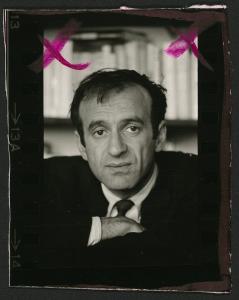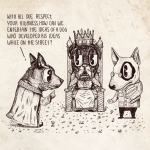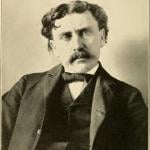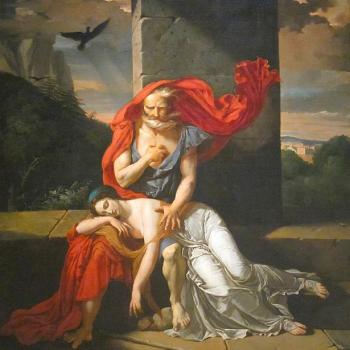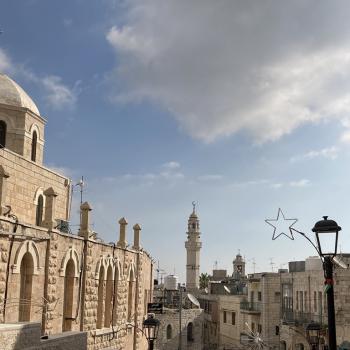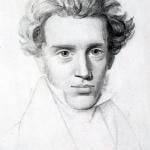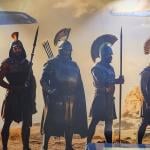It is summer time and it is usually the season I try to get as much reading done as humanly possible. One personal goal is to make time for a couple of novels. Last summer I read Donna Tartt’s The Secret History and a little later The Goldfinch. A nice follow up in analyzing Tartt’s Catholic themes is the chapter by Jennifer Frey in Women of the Catholic Imagination:Twelve Inspired Novelists You Should Know (edited by Haley Stewart). This summer I have plans to read Min Jin Lee’s Free Food for Millionaires. Her novel Pachinko is one of my favorites of all time. Lee’s books are important in our home since my wife loves them as well.
I just finished Nicole Krauss’s book The History of Love. The book goes back and forth between two voices, one an elderly Jewish man who survived the horrors of the Nazi attack, and then suddenly comes together for a very satisfying ending. Krauss’s thoughts post October 7th is also worth listening to. The next book of Krauss I am planning to read is Forest Dark. I am hoping to write exclusively about Krauss in the future.
Krauss’s book reminded me of another writer who made an impact on me. In fact, it was from a summer reading in June 2016. I remembered this time well because we were really struggling. Adjunct work that I expected was not available so I needed to find a way to make some income quick. At one point I recall sitting in an empty parking lot with this book with an old man on the cover, beginning an early morning shift as a Lyft driver. I only did this job for a couple of weeks, but at my lowest point emotionally Holocaust survivor Elie Wiesel was a voice of peace for my life. Wiesel is best known for his book Night but it was his memoir Open Heart that I recall this lonely time.
The first time I read Night was to tutor middle school and high school students late in 2003. I sort of stumbled into this tutoring job and suddenly I was teaching what is now considered a modern classic text. I think I read somewhere that Wiesel once said that he did not want to see a film made from the movie because it would take away from the rawness and silence between his words. It is a rough book to read, coming to terms with demonic evil in recent history. I am pretty sure the students were not mature enough to feel the gravity of the book, but it troubled me greatly. The book propelled Wiesel to be one of the most important voices in post-Holocaust history. Forcing readers to ask where was God during this horrific moment in history is why Christian post-Holocaust theologians like Jürgen Moltmann utilized Wiesel’s work in his theology. Has a generation worked more tirelessly, while igniting a crucial moment in Jewish-Christian dialogue, to ask questions about the existential crisis of feeling abandoned by God?
Open Heart is a late memoir, written years after Night, when Wiesel was coming face to face with his own mortality. The cruel fate of history was that he had survived the Holocaust but may meet his maker from heart surgery. Spoiler alert: he survived the surgery. I never reread this book, and outside of a few books of interviews, conversations, and an occasional documentary, I have not spent that much time looking at his works. So what was it about this book that brings back this sad summer memory?
I decided to take a look at my book. I grabbed this small, 79 page book from my office bookshelf to examine passages I underlined back when I was waiting in that lonely parking lot. This one is truly important for our times:
“I believe in language even though it has been wounded, deformed and perverted by the enemies of mankind. And I continue to cling to words because it is up to us to transform them into instruments of comprehension rather than contempt. It is up to to us to choose whether we wish to use them to curse or to heal, to wound or to console.” (73)
There is a lot to unpack in this selection. We are now exposed almost daily to words being used for contempt rather than comprehension, to curse and wound rather than to heal and console. Perhaps I am a little naïve but I am still shocked at the way words are used online for sake of being cruel to oftentimes a complete stranger. Words matter to Wiesel because he is a writer, but also he knows that dehumanizing language from political leaders can lead to genocide.
Some thoughts on what he thought might change after Auschwitz, but sadly has not:
“At the time of the liberation of the camps, I remember, we were convinced that after Auschwitz there would be no more wars, no more racism, no more hatred, no more anti-Semitism. We were wrong. This produced a feeling close to despair. For if Auschwitz could not cure mankind of racism, was there any chance of success ever? The fact is, the world has learned nothing. Otherwise, how is one to comprehend the atrocities committed in Cambodia, Rwanda, Bosnia…?” (51)
These were his words over a decade ago and the world has still not seemed to have learned much. Now there are fewer Holocaust survivors (Wiesel died in 2016) and our capacity to comprehend history is fading away. Thank God for the technology to preserve their voices, but what good do these archives serve with the cruelty of misinformation flows across screens. It is almost ten years after his death and I wonder what he would make of the current rise of anti-Semitism. Moreover, would he speak out about all the other atrocities that have occurred? (I want to explore this thought further by looking at Isabella Hammad’s small book Recognizing the Stranger: On Palestine and Narrative).
Books can tell us about both our near and far neighbors, the good times and the bad. Part of the joy and hope that books bring is to connect us to others. Wiesel writes: “If life is not a celebration, why remember it? If life—mine or that of my fellow man—is not an offering to the other, what are we doing on this earth?” (75)
For the beginning of the summer of 2016, while reading this small book in that empty parking lot, Wiesel reminded me that life was truly a celebration.


